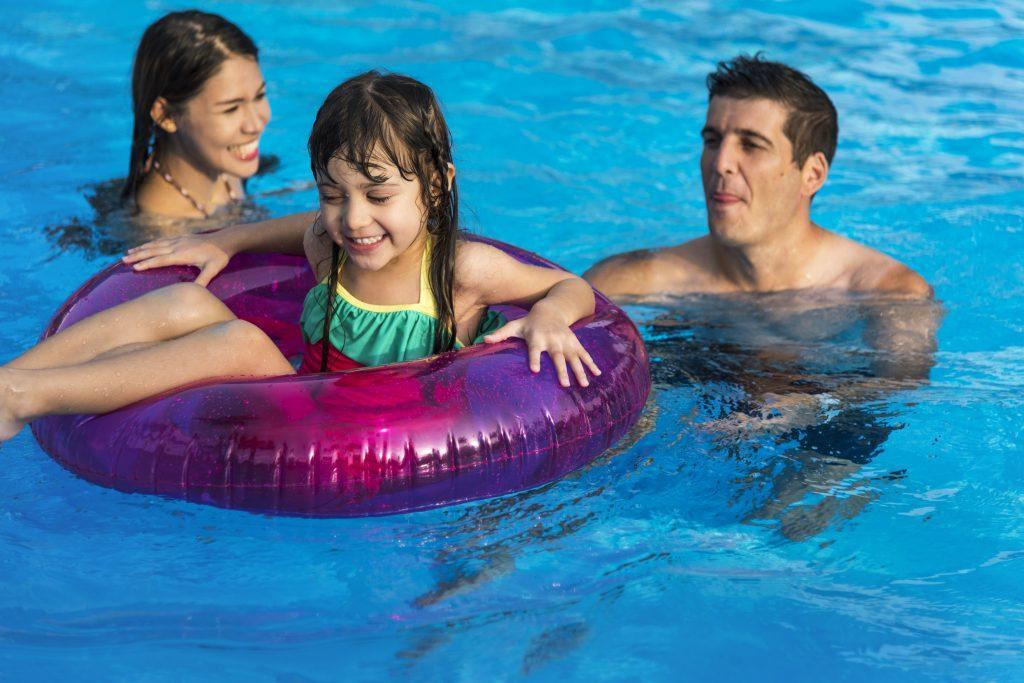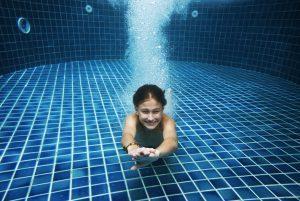Swimming is the most popular full-body workout for all wholesome reasons. You burn almost 40% more calories than running, and you put into action all the muscles of your body. But one common question that plagues the minds of veterans and newbies is, “how harmful is the chlorine water in the swimming pool”?
Chlorine prevents infections by killing bacteria. As per international standards, the recommended chlorine level is between 1 Part Per Million (PPM) and 5 PPM. However, swimming pool water can sometimes cause redness, skin rashes, and itchiness in your body.
Here are the top four things that you should be aware of Chlorine:
- Chlorine strips the skin of its natural oils and it erodes your skin’s natural protective barrier. Your pores open, and your skin becomes more vulnerable to the effects of water and chlorine. So shower immediately after swimming with a gentle soap or body wash. Do not exfoliate, as it will only irritate your skin. Then generously apply a thick layer of moisturizer while your skin is still damp to rebuild your skin barrier.
- Chlorine strips off the essential oils from your hair and scalp too. This can result in dryness, changes in hair color, and even an itchy, irritated scalp. The easiest solution is to rinse your hair with non-chlorinated water before getting in the pool. This way, your hair is saturated with clean water to absorb less chlorinated water. And post swimming, use a good deep cleansing shampoo and conditioner. The best suggestion is to wear a swim cap to completely block the interaction with chlorine.

- Eye care is one of the most important things to bear in mind. Chlorine can wash away the tear film that keeps your eyes moist, smooth, and straightforward. Lack of a tear film could result in teariness, redness, and sensitivity to light for a few hours after leaving the pool. Also, pink eye conjunctivitis is a common bacterial infection many contract from a swimming pool. It is an absolute no to wear contact lenses in a chlorinated pool. Bacteria can grow on the lenses, even if just a single dip. If you choose to swim google-free, splash fresh water with your eyes closed right after swimming. You can balance your tear film with over-the-counter lubricating eye drops before and after swimming. Hey, did you know the first swimming goggles were made from tortoise shells?
- When chlorine mixes with your sweat and dirt, it produces chloramines in the air. Especially if it is an indoor pool, if you inhale chloramines, it can cause wheezing, coughing, or even chest tightness. People with asthma might experience this the most. You can keep your reliever inhaler handy by the poolside and consult a doctor on the recommended duration of exposure to chlorine water.
By the way, Chlorine, the serial stripper of natural oils, is not that bad for some people with skin conditions such as acne, eczema, and psoriasis. Chlorine is a bleach that kills the bacteria on the skin and might reduce the itching, redness, and scaling for a few people.






